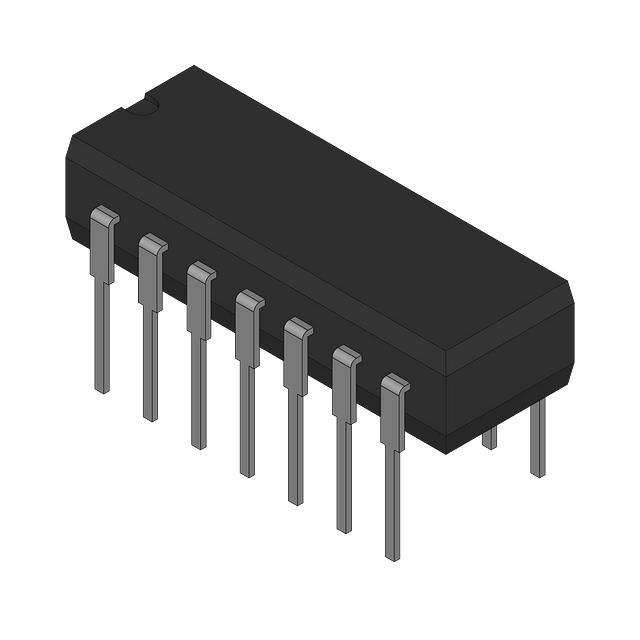JM38510/05852BCA
Manufacturer No:
JM38510/05852BCA
Manufacturer:
Description:
CD4066B-MIL CMOS QUAD BILATERAL
Datasheet:
Delivery:





Payment:




In Stock : 158
Please send RFQ , we will respond immediately.









JM38510/05852BCA Specifications
-
TypeParameter
-
Supplier Device Package-
-
Package / Case-
-
Mounting Type-
-
Operating Temperature-
-
Crosstalk-
-
Current - Leakage (IS(off)) (Max)-
-
Channel Capacitance (CS(off), CD(off))-
-
Charge Injection-
-
-3db Bandwidth-
-
Switch Time (Ton, Toff) (Max)-
-
Voltage - Supply, Dual (V±)-
-
Voltage - Supply, Single (V+)-
-
Channel-to-Channel Matching (ΔRon)-
-
On-State Resistance (Max)-
-
Multiplexer/Demultiplexer Circuit-
-
Switch Circuit-
-
PackagingBulk
-
Product StatusActive
-
Series*
The JM38510/05852BCA integrated circuit chips, also known as MIL-STD-883 Class B microcircuits, have several advantages and application scenarios. Here are some of them:Advantages: 1. High reliability: These chips are designed and manufactured to meet stringent military standards, ensuring high reliability and performance in harsh environments. 2. Extended temperature range: They can operate over a wide temperature range, typically from -55°C to +125°C, making them suitable for applications in extreme temperature conditions. 3. Radiation resistance: These chips are designed to withstand radiation effects, making them suitable for use in space, nuclear, and other high-radiation environments. 4. Longevity: The MIL-STD-883 Class B microcircuits are built to last for a long time, ensuring longevity and stability in critical applications. 5. Compliance with military standards: These chips comply with MIL-STD-883, which is a set of test methods and procedures for microelectronic devices used in military and aerospace applications.Application Scenarios: 1. Aerospace and defense: The high reliability, extended temperature range, and radiation resistance make these chips ideal for aerospace and defense applications, such as avionics, missile systems, satellites, and military communication systems. 2. Space exploration: The radiation resistance and reliability of these chips make them suitable for use in space missions, where they can withstand the harsh radiation environment. 3. Nuclear power plants: Due to their radiation resistance, these chips can be used in nuclear power plants for critical control and monitoring systems. 4. Industrial applications: The extended temperature range and reliability of these chips make them suitable for industrial applications where extreme temperatures and harsh conditions are present. 5. Medical devices: In certain medical devices that require high reliability and longevity, such as implantable devices or equipment used in radiation therapy, these chips can be used.It's important to note that the specific application scenarios may vary depending on the requirements and certifications of the end-user.
JM38510/05852BCA Relevant information
-
DG509AAZ/883B
Analog Devices Inc./Maxim Integrated -
TS12A4514PE4
Analog Devices Inc. -
TS3A24159DGSR
Analog Devices Inc. -
TS12A4515DBVR
Analog Devices Inc. -
SW202NBC
NXP Semiconductors -
MAX464CNI
NXP Semiconductors -
MC74HC4051ADWR2G
NXP Semiconductors -
74LVC1G3157GWXL
Nexperia USA Inc. -
SW202NBC
NXP Semiconductors -
TDA3683J/N2S,112
Analog Devices Inc.







